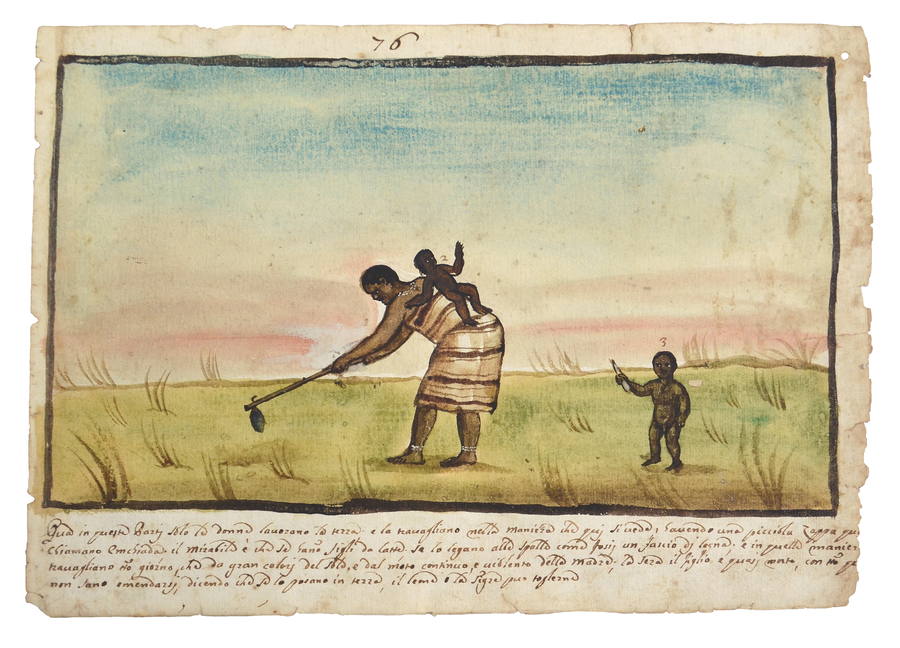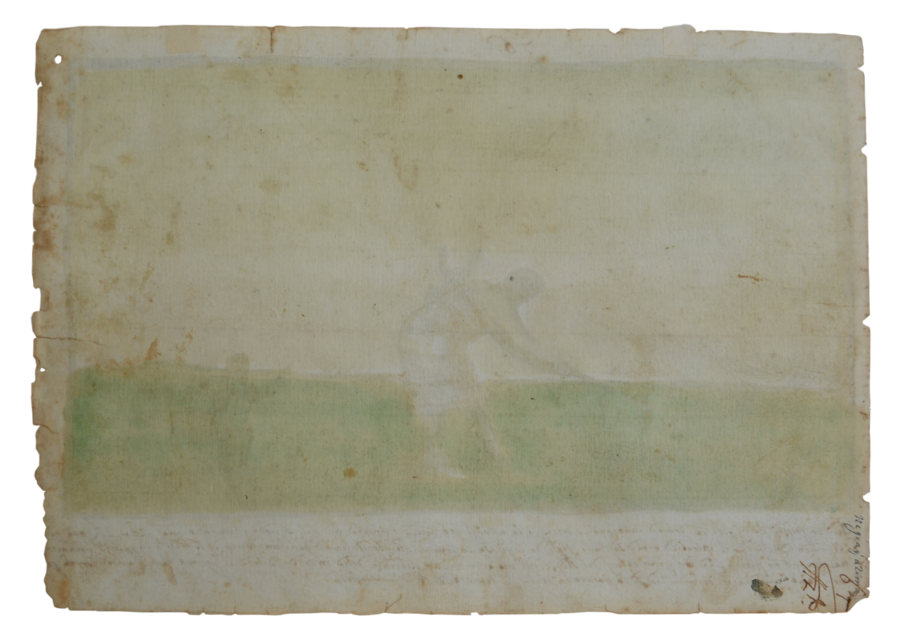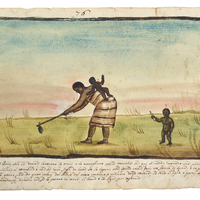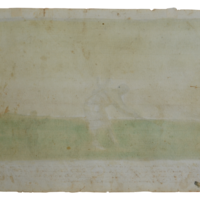PW076: In these parts only women work the land
Qua in queste Parti solo le donne lavorano la terra e la travagliano nella maniera che qui se vede, havendo una picciola zappa que chiamano emchiada1 ; il mirabile è che se han[n]o figli da latte; se lo legano alle spalle come fossi un fascio di legna; e in quella manier travagliano t[u]tto giorno, che da gran calori del sole; e dal moto continuo e violento della madre; la sera il figlio e quasi morto, con tutto p[erò] non sano emendarsi, dicendo che si lo posano in terra, il leone o la Tigre puo toglerne
[verso in Portuguese] negra q arima
Here in these Parts only women work the land; and they work it in the manner that is seen here, they have a small hoe that they call emchiada; it is remarkable that if they have nursing children; they tie it on the back as if it were a bundle of wood; and in this way they work all day, and because of the great heat of the sun and the constant and violent movement of the mother; in the evening the child is almost dead, with all this however they do not know how to amend themselves, saying that if they put it on the ground the lion or the Tiger can take it away
[verso in Portuguese] Black woman who cultivates
Notes
- 1From the Portuguese, enxada: hoe




Add new comment